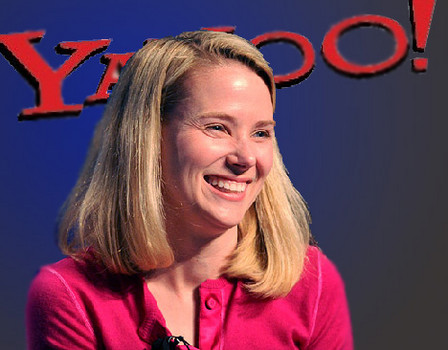What is a Great Product Manager ?
You have to be good at…
• Road mapping
• Prioritizing feature list (and Prioritizing decisions)
• Use of Engineering mandates wisely, since you have very few shots
• Calibrate your predictive skills and metric abilities
• Talk in different languages when talking to engineers, business people
• A good sense in understanding of the customer
• Understanding all of the features
• Understanding revenues & Profit & Loss(P&L key metric in PM performance)
• Understanding ALL the pieces
If you can be a product manager, you can acquire the experience of acting as a CEO. The skills gained in product roadmapping, prioritizing tasks, interoffice communications, customer understanding, and product marketing are absolute necessities for being an effective enterprise lead.
Being a product manager is a demanding and high profile job. Individuals should make sure they’re up to the challenge. Here’s why product management as CEO training makes sense:

Marrisa Mayer is Engineer turned Product Manager turned CEO
Good Product Managers
- Good product managers are extremely detail focused throughout the full product development lifecycle. You should be able to identify and resolve inconsistencies in features/applications you are defining and participate in the entire development process. Leading a quality product to release may require hundreds and hundreds of minor adjustments, clarification and decisions to get to that highly polished state of a truly great user experience.
- Good product managers command strong leadership of the build & release & feedback & iterate process. Putting a qualitative and quantitative feedback system in place that actively monitors all systems and uses signals to inform future decision, and is adaptable and willing to quickly change thinking & approach when data indicates the reality is contrary to a hypothesis.
- Visuals cut through clutter: When talking about Design. This is important when communicating with your art team. Product Managers should only wire frame though (this is arguable though). Good product managers should make visuals when communicating with the art/UI team. “Writing about design is like dancing about architecture”
- Good product managers have enough technical knowledge of the product they know why some things are difficult to implement and why some things are easy to implement. You need to be able to speak “engineer” and communicate the system they will be working on, but good product managers are fast at internalizing the basics and can have reasonably accurate guess on time and and effort for changes. These educated guesses will need to be validated with your engineering team but should be directionally correct as your team is depending on you to make the calls as to whether a particular feature or change is worth the time required to implement it. Good Product Managers can also think about their product from an engineering perspective and understand how the thing they’re specifying fits into existing patterns, game system,database structures, etc that already exists in the product.
- Good product managers have excellent relationships with their engineering teams. PM’s typically have very direct reports but have to work with most of the team to get something successfully released. PM’s must cultivate a strong feeling of collaboration and teamwork, so that when you ask someone to put extra energy to get the next release out, or get them to work 60+ hours a week, they’re willing to do it.
- Good product managers are pragmatic and clear/concise communicators. The specs you write should be as simple as possible and no simpler. Knowing this line and staying on the right side of it is part of the art of product management. Your team needs to understand the intention of what should be created but need to facilitate this understanding in the most efficient way possible. The degree of communication required varies widely based on experience of your team, and if you work together onsite or remotely, the backgrounds of individual team members, etc, but as product managers you should have a instinctive account of what information your team needs now. (comes with experience)

Facebook Cafeteria
- Good product managers have good taste. (I love eating) A good product manager will strive to get the product out the door as fast as possible, but know when something just isn’t ready for the platform and will be the one to say so confidently. Good product managers are keepers of a great user experience.

Engineering = #1 Resource of Product Manager
- Good product managers think of engineering capacity as the single most valuable resource in the universe. They should seek to refine the product development process so that the engineering team has everything they need to build the product as efficiently as humanly possible. Which means required documentation is done BEFORE needed, concepts are tried and test with prototypes or other minor tests prior to investing in a build, the assets and real data needed are prepared prior to investing time in full builds, the data and assets needed are ready before the developer team needs them. You can never be 100% ready though for anything in life, especially if working in an agile process, but you should aim for very high standards.

Alp’s Product Manager Meter. Red/Health ~ Orange/Experience
- Good product managers have experience and good health. Product management is a skill you learn and improve through practice. If you keep getting sick and sick you will be out of the picture. Good health is required to be successful in any business.
Important Point = Good product managers are prepared to do whatever is needed to release a quality product. This might mean doings things at time that don’t fall in your responsibility or job description. This may mean wire framing, quick hacking, paper prototyping, QA testing (even if you have QA people in place), etc. Product managers should get their hands dirty to ensure the product keeps moving forward.








